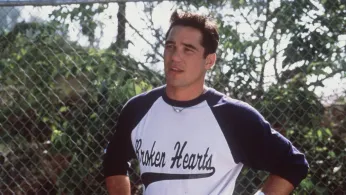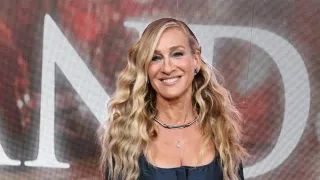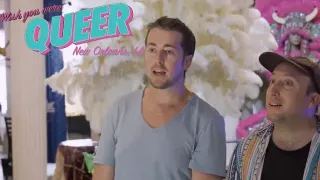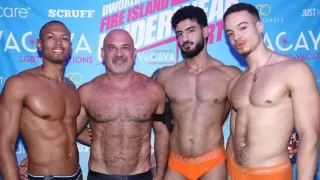
Aug 1
Dean Cain Celebrates Gay Role in "The Broken Hearts Club" While Opposing LGBTQ+ Rights at the Ballot Box
READ TIME: 3 MIN.
Dean Cain, a familiar face to millions as Superman from the 1990s TV series “Lois & Clark: The New Adventures of Superman,” is once again at the center of controversy within the LGBTQ+ community. In a recent interview, Cain expressed pride in his performance as a gay character in the 2000 film “The Broken Hearts Club,” stating he “loved” the opportunity to play a member of the LGBTQ+ community on screen. However, in the same breath, Cain acknowledged that he has voted against LGBTQ+ rights in the past three U.S. presidential elections, a revelation that has drawn swift criticism from LGBTQ+ advocates and allies .
Cain’s comments come at a time when the entertainment industry continues to grapple with questions around authentic representation and meaningful advocacy. While the presence of LGBTQ+ characters in film and television is celebrated as a step forward, the personal actions and political choices of the actors who portray them remain under increasing scrutiny .
Cain’s relationship with the LGBTQ+ community has long been complicated. While he has played gay characters and spoken about the importance of inclusivity in Hollywood, his political history tells a different story. In 2018, Cain attended the Family Research Council’s Values Voters Summit, an event organized by a group the Southern Poverty Law Center has designated as an anti-LGBTQ hate group . At the time, LGBTQ+ organizations such as GLAAD criticized his participation, citing the Family Research Council’s record of opposing marriage equality and promoting harmful rhetoric about LGBTQ+ people. Cain responded by accusing LGBTQ+ advocates of “intolerance,” insisting that his appearance was merely to promote his film, not to endorse the group’s views .
Despite Cain’s insistence that he supports LGBTQ+ rights, his record on voting and public appearances continues to raise questions. In his latest statement, his explicit admission of voting against LGBTQ+ rights in three consecutive presidential elections stands in direct contrast with his assertions of allyship . This contradiction has left many in the community feeling betrayed, particularly those who saw Cain’s on-screen roles as a sign of authentic support.
The divide between on-screen representation and off-screen actions is a recurring theme in entertainment. LGBTQ+ advocates argue that genuine allyship requires more than accepting roles or making statements in support of the community; it demands consistent advocacy and solidarity, especially at the ballot box. As GLAAD emphasized in their response to Cain’s appearance at the Family Research Council summit, “Allies should not turn a blind eye to the people, groups, and rhetoric that propel this event. There is no event on the calendar that is more rabidly against LGBTQ people and our rights” .
For many LGBTQ+ people, voting against their rights—whether it concerns marriage equality, anti-discrimination protections, or transgender rights—is fundamentally incompatible with claims of support. The disconnect between Cain’s public persona and political actions has become a case study in the limits of symbolic representation without substantive backing.
Cain’s statements have reignited debate on social media and within the LGBTQ+ press, with many questioning what it means for an actor to benefit from playing LGBTQ+ roles while failing to support the community’s rights in concrete ways. Critics argue that such contradictions risk undermining the progress made in both media representation and legal protections for LGBTQ+ people .
There is also growing awareness in Hollywood about the importance of hiring LGBTQ+ actors for LGBTQ+ roles, a move that is seen as both authentic and empowering. While allies have played a significant role in increasing visibility, the call for representation to be paired with real-world advocacy is becoming more urgent. As LGBTQ+ rights face ongoing legislative challenges in the United States, the stakes are higher than ever.
Cain’s case serves as a reminder that true allyship extends beyond the screen. For many in the LGBTQ+ community, the hope is that those who portray their stories will also stand with them in the fight for equality where it matters most.






